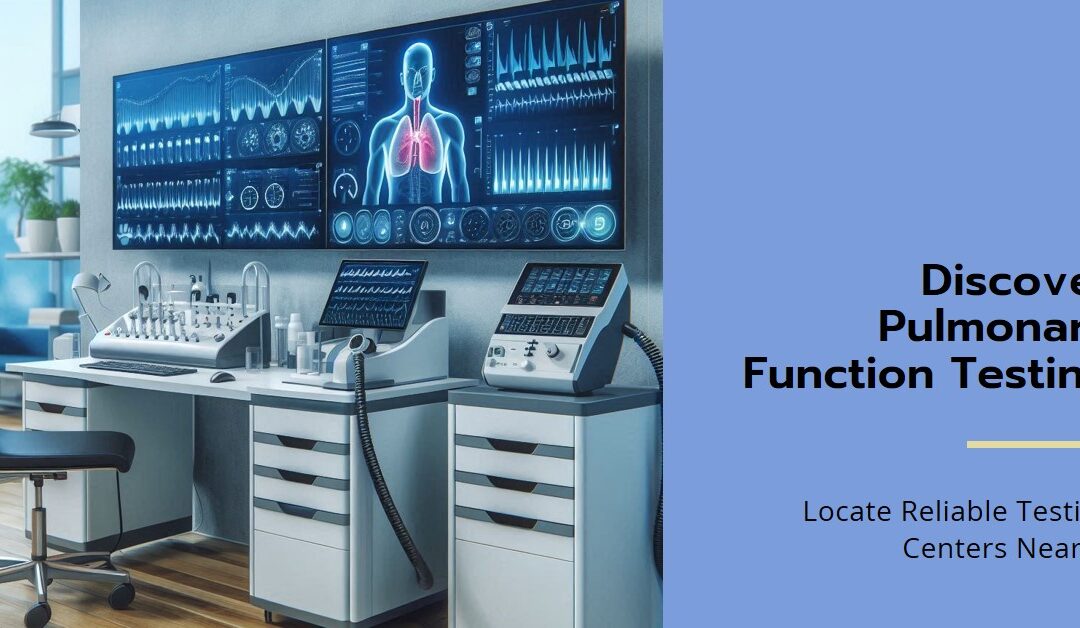Pulmonary Function Tests (PFTs) are essential diagnostic tools that evaluate lung capacity, airflow, and overall respiratory health. Whether you’re experiencing chronic respiratory symptoms or need routine monitoring, finding a reliable facility for a PFT test near you is crucial. This guide dives deep into what a PFT test entails, its benefits, how to find the best testing centers, and what you can expect during the process.
What Is a PFT Test?
A Pulmonary Function Test is a series of non-invasive tests designed to assess the functioning of your lungs. It measures parameters such as:
- Lung volume: The amount of air your lungs can hold.
- Airflow rate: How effectively air flows in and out of your lungs.
- Gas exchange efficiency: How well oxygen and carbon dioxide are transferred in your lungs.
These tests help in diagnosing and managing respiratory conditions like asthma, Chronic Obstructive Pulmonary Disease (COPD), pulmonary fibrosis, and more.
Why Should You Get a PFT Test?
A PFT test is not only diagnostic but also preventive. Here are the primary reasons to undergo a PFT:
- Symptom Evaluation
Persistent coughing, shortness of breath, wheezing, or chest tightness can be signs of underlying respiratory issues. - Monitoring Chronic Conditions
For individuals with asthma or COPD, regular PFTs help in tracking disease progression and effectiveness of treatments. - Pre-Surgical Assessment
If you’re preparing for surgery, a PFT ensures your lungs are healthy enough to handle anesthesia. - Workplace Exposure
People working in environments with hazardous substances (e.g., coal miners, factory workers) may need routine PFTs.
How to Find a PFT Test Near Me?
Finding the right facility for a PFT test near me requires careful consideration. Follow these steps:
- Search Online
Use search engines or maps to find diagnostic centers offering PFT services. Keywords like “best diagnostic centers for PFT” or “PFT test near me” can refine your search. - Check Reviews and Ratings
Platforms like Google Reviews or Yelp provide insights into the quality of service, hygiene standards, and staff expertise. - Look for Accreditation
Ensure the center is certified by relevant medical authorities like NABL (India) or CAP (USA). - Compare Costs
Prices for PFT tests can vary. Request pricing details to choose a center that fits your budget. - Accessibility and Equipment
Choose a center that is easily accessible and equipped with modern, calibrated tools for accurate results.
What Happens During a PFT Test?
The PFT procedure typically involves the following steps:
1. Preparation
- Avoid smoking, heavy meals, or strenuous exercise 4–6 hours before the test.
- Wear loose clothing for ease of breathing.
2. The Test
The test may include various methods, such as:
- Spirometry: Measures the amount of air you inhale and exhale.
- Lung Volume Tests: Performed using a body plethysmograph to determine the total lung capacity.
- Diffusion Capacity Test: Evaluates how well oxygen passes into the blood.
- Peak Flow Measurement: Checks the maximum speed of exhalation.
3. Duration
A typical PFT session lasts 30–60 minutes. The results are analyzed by pulmonologists or respiratory specialists.
Costs of a PFT Test Near You
The cost of a PFT test varies based on the location, type of diagnostic center, and tests included. Here’s an estimate:
- India: ₹800–₹3,000
- USA: $40–$400
- UK: £30–£250
Check if your insurance policy covers PFT tests, especially for chronic conditions.
Benefits of Choosing a Reliable Diagnostic Center
When searching for a “PFT test near me,” selecting the right facility ensures:
- Accurate Results: Modern equipment and trained staff improve diagnostic accuracy.
- Quick Turnaround: Prompt reporting helps in faster treatment.
- Comfort: A well-maintained, patient-centric center enhances the testing experience.
Types of PFT Tests
PFTs include several types of tests, each designed to evaluate specific lung functions:
- Spirometry: Measures how much and how quickly air can be inhaled and exhaled.
- Lung Volume Testing: Uses a body plethysmograph to assess total lung capacity.
- Diffusion Capacity Testing: Checks the efficiency of oxygen transfer from the lungs into the bloodstream.
- Peak Flow Measurement: Evaluates the maximum speed of air expulsion.
- Exercise Testing: Assesses lung function during physical activity to identify exercise-induced issues.
Common FAQs About PFT Tests
1. Are PFT tests painful?
No, PFT tests are non-invasive and pain-free.
2. How should I prepare for a PFT?
Avoid smoking, caffeine, and certain medications before the test as per your doctor’s advice.
3. Can children undergo PFT tests?
Yes, children above 5 years old can take the test if they can follow instructions.
4. How often should I take a PFT test?
This depends on your health condition. Chronic respiratory patients may need it every 6–12 months.
5. Where can I find the best diagnostic center for PFT near me?
Research online, check reviews, and ensure the center has experienced professionals.
Why PFT Tests Matter for Your Health
Respiratory health often goes unnoticed until symptoms become severe. By opting for a PFT test near you, you take a proactive step in monitoring and safeguarding your lung health. Regular testing, especially for at-risk groups, ensures timely intervention and better outcomes.
Conclusion
A PFT test is vital for diagnosing and managing respiratory conditions. Whether you’re looking for routine monitoring or addressing chronic symptoms, finding the right center near you is critical. Prioritize facilities with top-notch equipment, experienced professionals, and a patient-focused approach.
Have you taken a PFT test before, or are you considering one? Share your experience or concerns in the comments below!
Also know Treadmill Stress Test Near Me: Everything You Need to Know
